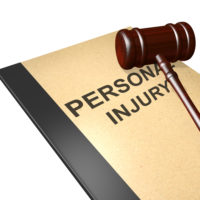Florida Recreational Use Laws

When a property owner opens their land to public use, they would normally be held liable to every person who is injured on that land. However, Florida and many other states have what are called recreational land statutes, which provide somewhat more protection for landowners in this position. If you are injured on land that has been opened to you at no charge, you need to be aware of how the recreational land use statute could alter your case, because the landowner may not, in truth, be liable for your injuries.
When Do Recreational Use Laws Apply?
Recreational use laws are designed to apply to any land that has been opened to the public for use at no charge. It does not matter who owns the land – a city or town, a private enterprise, or a semi-public entity like a church; the recreational use statute applies if the other criteria have been met. The lack of a charge is the most important criteria – if a private landowner opens their property to the public and charges a fee, the recreational use statute does not apply because the landowner is getting something in recompense for the act of allowing the public onto their land.
The reason that recreational use statutes exist in the first place is that the cost of modifying and maintaining property, such as a campground, swimming lake or other outdoor activity area, can be enough to stop many landowners from opening their premises to the public. A recreational use statute helps to offset that cost by lowering the potential liability an owner faces – and thus, potentially lowering legal fees and/or insurance premiums if a person were to be injured on that land, which encourages them to make their land available.
Liability Burden Is Different
Under the common law of premises liability, landowners have a duty to exercise reasonable care toward everyone who comes onto their land, though their specific duties differ depending on the classification of the person – in Florida, there are three classifications of people – invitees, licensees, and trespassers. For example, a property owner owes invitees the duty to make their property as safe as possible, and to warn them of any potential dangers, while they only owe a trespasser the duty to refrain from intentionally injuring them.
Under Florida’s recreational use statute, however, there is “limited liability” for landowners, regardless of the injured person’s status. The rationale is that this is the tradeoff for the landowner opening their property to the public, and also that there is no inherent guarantee of safety in that act – there is no duty owed by the landowner to either warn of present dangers, or to make those dangers safer. If a person wishes to sue under a theory of premises liability, but the recreational use statute applies, they must show “deliberate, willful or malicious” conduct on the part of the property owner in order to recover.
Call A Tampa Personal Injury Attorney
While Florida’s recreational use statute limits liability for property owners, it does not eliminate it. If you have been hurt on someone else’s property, you need an experienced attorney familiar with the law of premises liability, so that you can ensure you have the best possible chance to recover for your harm. The Tampa personal injury lawyers at the Rinaldo Law Group are happy to try and assist you. Call us today for a free consultation.
Resource:
flsenate.gov/Laws/statutes/2012/0375.251












